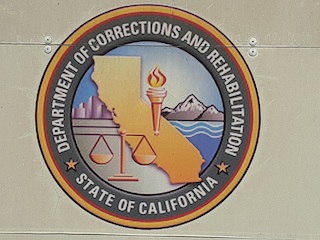In 2018, Defendant Clawson, a correctional officer at California’s San Quentin State Prison, shot Plaintiff Shikeb Saddozai during an incident while Saddozai was incarcerated there. Saddozai decided to sue Clawson for using excessive force in violation of his constitution right to proper protection under the Eighth Amendment.
He also decided to include Ron Davis, the warden of San Quentin, as well as several other guards involved in the incident and M. Gaitan, the Director of the California Department of Corrections and Rehabilitation for constitutional violations and negligent training, hiring and supervision.
 CDCR Emblem
CDCR Emblem
To maintain an action against such defendants, Saddozai had to comply with the Prison Litigation Reform Act (PRLA) exhaustion requirement. To do this, he had to follow a three-step grievance process: first, he had to submit a grievance form 602 to the prison appeals office and then, depending upon the response, appeal that decision on a second and third level.
On August 25, 2018, Saddozai filed a first-level grievance regarding the excessive force incident. The prison appeals office rejected the grievance as procedurally improper because Saddozai exceeded the limit on the number of grievances allowed to be filed during any fourteen-day period. He was instructed to refile after September 12, 2018.
Saddozai then resubmitted his grievance after September 12, 2018, and on September 26, 2018, the prison appeals office again rejected Saddozai’s grievance on procedural grounds for being “obscured by pointless verbiage or voluminous unrelated documentation” and instructed him to resubmit.
In the meantime, Saddozai had filed a federal complaint in pro per on September 11, 2018.
On October 2, 2018, Saddozai filed a procedurally compliant prison grievance (“third time’s a charm”) prison grievance about the excessive force incident. The prison responded by denying the relief at the first level of review, so he appealed on the second level on October 28, 2018, which was also denied. Saddozai then appealed to the third level and on February 5, 2019, he received a final administrative decision. At this point, Saddozai had fully exhausted his administrative remedies.
As to Saddozai’s federal action, the U.S. District Court screened Saddozai’s complaint on January 16, 2019, under 28 U.S.C. § 1915A(a) and dismissed it with leave to amend. The complaint included not only the allegation of excessive force, but also failure of the prison to offer religious accommodations and denial of access to the prison law library.
About a month later, Saddozai filed a first amended complaint in federal court and the federal court again dismissed his complaint. He then filed a second amended complaint on August 15, 2019, raising claims only related to Defendant Clawson and excessive force.
The federal court determined that Saddozai’s second amended complaint “stated a cognizable claim” against Defendant Clawson “for failure to protect under the Eighth Amendment.” Saddozai then supplemented his complaint “as a matter of course” under Federal Rule of Civil Procedure, Rule 15, and this third amended complaint became the operative complaint.
Defendant Clawson and the other defendants then moved to dismiss Saddozai’s third amended complaint for failure to state a claim and because Saddozai had not exhausted administrative remedies before he filed his original federal complaint. The federal court dismissed all the defendants except Clawson and stated Saddozai had a cognizable Eighth Amendment deliberate indifference claim against Clawson and then agreed that Saddozai had filed his federal claim before exhausting his administrative remedies under the PRLA.
Saddozai then appealed this ruling to the United States Court of Appeal for the Ninth Circuit, which reversed the district court in favor of Saddozai. The Ninth Circuit cited to Jackson v. Fong (9th Cir., 2017) 870 F. 3d 928 at 934, wherein the Ninth Circuit held that a prisoner “can cure deficiencies through later filings, regardless of when he filed his original action.”
Therefore, since Saddozai’s third amended complaint was the operative complaint, it was PRLA compliant because by the time it was filed, Saddozai had exhausted his administrative remedies.
We present this rather tortured series of events in this article to exemplify how procedurally rigorous it is for a prisoner to file a civil action under the PRLA and yet how federal law is, by comparison, somewhat forgiving, as this case shows.
The citation for the United States Court of Appeals for the Ninth Circuit ruling discussed above is Shikeb Saddozai v. Ron Davis, et al. (9th Cir., 2022) 20-17519.
For more information about excessive force by police and qualified immunity, please click on the following articles:
 CDCR Emblem
CDCR Emblem